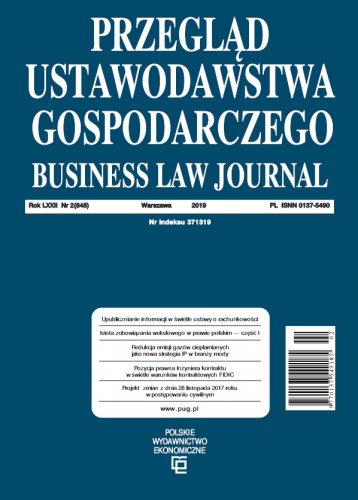The aim of this paper is to present in general terms (and not in detail) the challenges concerning the functioning of the institutional structure of consumer protection on the financial market in Poland (consumer protection network on the financial services market), especially in view of the need to counteract the abuses revealed in the post-crisis reality, aimed at providing them with real protection.
It is not about detailed characteristics of legal regulations concerning the status and competences of already functioning bodies and institutions of consumer protection of financial services, but only about indicating problems leading in general dimension and certain proposals of conceptual changes in the construction of this infrastructure of the consumer protection of financial services and its location within the framework of the financial market safety network.
The author, taking as a starting point the current infrastructure of consumer protection in the financial market in Poland and the tasks and competences of the bodies creating it (without their analysis, however), makes an attempt to answer questions that should be undertaken (both in the regulatory and actual), so that these entities create from the institutional (subjective and competence) point of view a coherent system, and the consumer protection network in the financial market was a guarantee of the actual enforcement of consumer financial market law (consumer protection law for financial services), both in the public and private legal dimension.
In particular, the author will propose the components of which this institutional structure should be built and what forms of cooperation between them would be indicated, in particular whether there is a need to create new bodies (new elements) of this structure equipped with additional competences and tasks? (without, however, taking into account detailed considerations in this respect, but only at the level of the general concept). Due to the limited framework of the present study, it is not the Author's goal to present exhaustively the entire concept and proposal of changes in the structure (network) of consumer protection in the financial market, but only to signal the need and necessity to undertake a discourse, both at the theoretical and practical level in this area.
Keywords: Financial Market; Financial Service; Consumer; Consumer protection in financial services; financial market law; consumer protection authorities and institutions in financial services; financial market safety net

